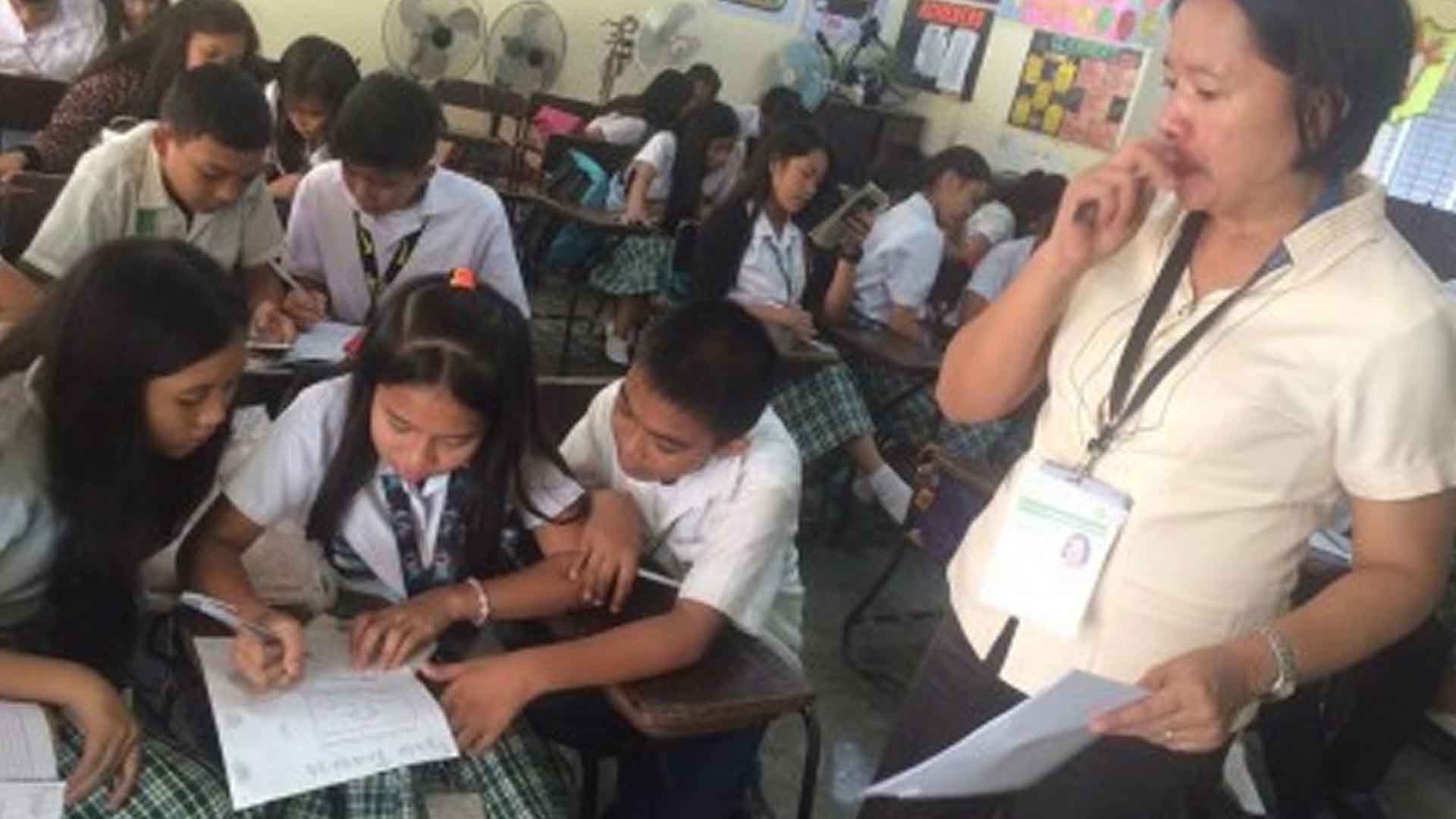To catch up with the new demands of learning, teachers in Davao City have been equipping themselves with online learning skills as classes transition into a largely digital environment amid the coronavirus disease (Covi-19) pandemic.
Tessie Monterde, Junior High School teacher at Sta. Ana National High School, said teachers like her welcome the government’s initiative to prepare educators like her to be proficient in learning software and applications essential in the “new normal”.
“There are a lot of webinars that the region (Department of Education-Region 11) offers and we take these chances because as teachers, we want to constantly improve ourselves to keep up with the changing times. Tinuturuan kami paano gumawa ng (In those webinars, we learn how to create) engaging PowerPoint presentations, how to record our classes, how to use Microsoft software,” Monterde told the Philippine News Agency (PNA) in a phone interview on Monday.
Monterde said she and her colleagues learned various teaching modalities and managed to familiarize themselves with video conferencing applications and software such as Google Classroom, StreamYard, and Zoom as well as various learning management systems such as Moodle, OneNote, and Kotobee.
“Teachers gain certificates after completing these capacity-building activities. This means we do not accelerate to the next workshop until we really know how to utilize these applications and software,” she explained.
Monterde said the web-based training and other learning opportunities help them prepare while waiting for the modules to be provided by the Department of Education (DepEd) central office, which will be handed down to regional and division offices for local inputs.
Because of the online learning scheme, she said teachers without advisory classes will now handle their own to further improve the student-teacher ratio, leading to smaller, manageable classes.
“The (DepEd-11) director assigned us to have 25 students per teacher,” she said.
Volunteer teachers
Dr. Ma. Gemima Valderrama, DepEd-11 head of public affairs unit, said contingencies are available should the “new normal” puts a strain on DepEd’s learning goals.
One of these, she said, is the enlistment of Education graduates who will act as “back-up in case the situation becomes complex.
“The region has searched for volunteers and aside from that, Education graduates will also step up once the need to do so arises. They will be given certificates in return,” Valderrama added.
Under the sceme, Valderrama said volunteer teachers would earn experience and would be given preferential consideration on DepEd’s available positions in return for their services.
Learning for all
Valderrama assured that DepEd has instituted measures to ensure that every learner has an option to continue their education even with the restrictions related to the Covid-19 crisis.
“There are options for learners with access to the internet and gadgets, those who only have gadgets, and those who have none at all. If we look at all these, every learner is given the opportunity to continue learning,” she said.

If the learners have laptops and other gadgets and an internet connection, they can be placed in an online learning modality, she said.
If the learners have gadgets but without an internet connection, they can have opt for digital modular modalit, she added.
She said learners who have no gadgets and Internet connection but with radio and television can benefit from the radio and television-based instruction.
Moreover, learners who have no electronic devices can have printed modules delivered to their homes, Valderrama said, adding: “We can also have blended learning–meaning, combination of all these.”
As of July 14, DepEd-11 said the region’s total enrollment for kindergarten to senior high school level learners has already reached 344,810. The schools will accept enrolment until July 16.
Of the total, 309,276 were enrollees of public schools while 29,309 are enrolled in private schools. Alternative Learning Schools share 6,225 of the enrollees.
‘Eskwela Davao’
To ensure equal learning opportunities for Dabawenyos, the Davao City government has offered educational assistance to children belonging to poor families.
“Eskwela Davao” is an educational assistance program for children whose families lost their sources of income and jobs due to lockdowns and movement restrictions to slow the spread of the coronavirus.
Mayor Sara Duterte-Carpio encouraged all parents to avail of the program to secure their children’s education.
Out of the 22,000 target beneficiaries, the city government said at least 2,962 slots are still open for kindergarten pupils who will get PHP1,000 each; 9,493 slots for elementary pupils at PHP2,000 each; 4,039 slots for high school pupils at PHP3,000 each; and 4,192 slots for senior high students at PHP3,000 each.
Protection
To ensure comfortable learning, the Learning Resources Management and Development System (DepEd-LRMS) launched the Child Protection Policy Module Launch via Facebook Livestream on June 23.
“We want to make the children be aware that if they do not make anything wrong, they should speak up. So the government and the police can help them,” Duterte-Carpio said in the dialect during the virtual launch.
The City Social Welfare and Development Office (CWSDO), the City Social Services Development Office (CSSDO), the City Government of Davao Integrated Gender and Development Division (IGDD), and non-government organizations such as Tanikala also rendered their contribution for the child-centered project.
“The Department of Education has come up with this Child Protection Policy to prevent the occurrences of child abuse in the school setting. The Department of Education Division of Davao City has come up with the CPP modules to help prevent these child abuses and to help the local government unit to solve this problem,” Dr. Reynaldo M. Guillena, Schools Division Superintendent of the Department of Education Division of Davao City, said. (PNA)







